
Research is showing that aging equals anything but cognitive decline and unhappiness.
Podcast: Markus Wettstein of Humboldt University of Berlin joins this episode to discuss subjective age and its implications for health benefits, general well-being, and possible cross-cultural differences.
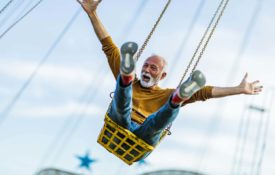
Podcast: In her final column as APS President, Alison Gopnik makes the case for more effectively and creatively caring for vulnerable humans at either end of life.

The most impactful psychological science research published in 2022 reveals that new understandings of human behavior continue to resonate with wide audiences.

A culturally underprivileged childhood increases a person’s risk of being less physically active in adulthood. This risk is greater for women than for men, according to new research published in the journal Psychological Science.
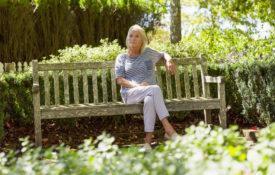
Findings indicating a decline in older adults’ theory of mind abilities may have been exaggerated by the cognitive demands of certain experimental designs.
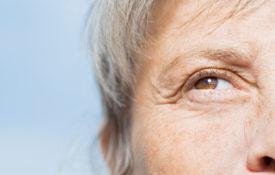
The 2023 APS Annual Convention began with a keynote by Catherine Alexandra Hartley (New York University) examining the causes and consequences of exploration across the lifespan.
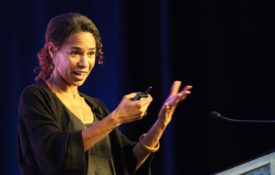
Previews of research by early-career psychological scientists on aging and lifespan development.
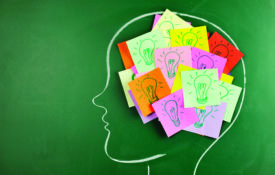
A conversation between Jennifer L. Eberhardt and Laura L. Carstensen about lengthening life expectancies, recasting the built environment, and rethinking social norms.

For successful messaging to older adults, ditch the stereotypes, consider their future time horizons, and help them savor the moments they can enjoy.
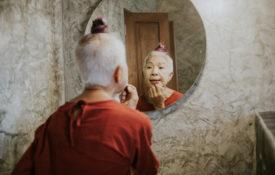
Science explores the formidable link between our earliest life experiences and our health in old age.

The powerhouse of the cell could also hold the secrets to healthy aging.

When a person receiving care has dementia, the caregiver is much more likely to experience depression or anxiety, especially if they have high levels of emotional empathy.

Older adults continue to report higher wellbeing despite the heightened risk posed by the coronavirus pandemic.

Education provides little protection against the onset of cognitive declines but can boost the cognitive skills. [August 10, 2020]

In March, Lisbeth Nielsen took over leadership of the Division of Behavioral and Social Research at the National Institute on Aging (NIA).

Big Data involving thousands and thousands of participants is enabling researchers to track the development of different cognitive skills across the lifespan with increasing accuracy. And the results of these studies bring light to some surprising — and perhaps heartening — findings about the aging brain.

In exploring aging societies around the world, psychological scientists find significant variability in social relationships and family structures, individuals’ needs and expectations, and potential solutions for maintaining quality of life. Declining fertility rates and each country’s unique situational context point to the need for flexibility with regard to policy development related to aging.

Lesson plans about looking past stereotypes to communicate to older people and the link between cultural tightness and COVID-19 mortality.
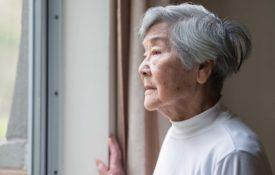
Longitudinal research reveals that self-reported feelings of well-being tend to increase with age, but that a person’s overall level of well-being depends on when he or she was born.

Bilingualism appears to have a positive influence cognitive reserve — the way the brain responds to neuropathological damage.

The generation people are born in might predict their personality traits and how they change as they grow older, this research suggests.
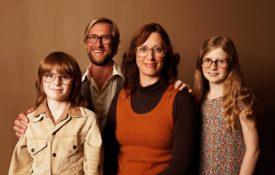
Older adults are encouraged to stay active to keep their minds sharp. But new findings from a longitudinal study suggests that only demanding activities — such as learning photography — will benefit cognitive functioning.

Psychological scientists have done extensive research on the aging brain, Alzheimer's Disease, different types of dementias, and much more.

Although thinking about dying can cause considerable angst, research suggests that the actual emotional experiences of the dying are both more positive and less negative than people expect

From informal family caregivers at home to trained professionals in health care facilities, how caregivers act and behave can greatly impact the outcomes of those they care for.

From the field's most intractable challenges to its most promising frontiers, this issue explores the horizon.

Having a happy spouse can lead to a longer marriage, and now study results show that it’s associated with a longer life, too.
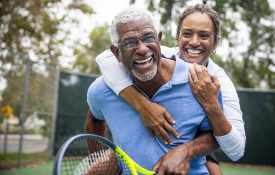
Accumulating evidence suggests that providing social support for others can benefit caregivers, boosting feelings of social connection.

A simple memory test can have a noticeable impact on just how old some older adults feel, results from a cognitive study show.

Driving a car is one of the most cognitively complex tasks we engage in on a daily basis. Driving requires an assortment of cognitive skills including executive functioning, information processing, visual processing, and memory. As

A study at Tufts University addresses the influence of age-related stereotypes on memory performance and memory errors in older adults.

In a large survey of people's first memories, nearly 40% of participants reported a first memory that is likely to be fictional.

Psychological scientists have designed cognitive tests that can help identify everything from memory deficits to cultural heritage.

Even though people tend to remember fewer details about past events as time goes by, the details they do remember are retained with remarkable fidelity.

Data from a longitudinal study show that age-related declines in abstract reasoning ability predict increasing depressive symptoms in subsequent years.

Researchers explore the science of what changes, and what stays the same, as we age. Topics include the lifelong impact of childhood experiences, mitochondria's powerful role in healthy aging, and the need for a new "map of life" as life expectancies increase.
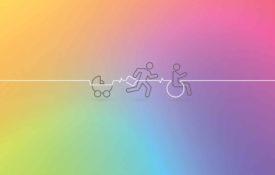
Age-related changes in healthy adults may reflect shifting priorities more than cognitive decline.
